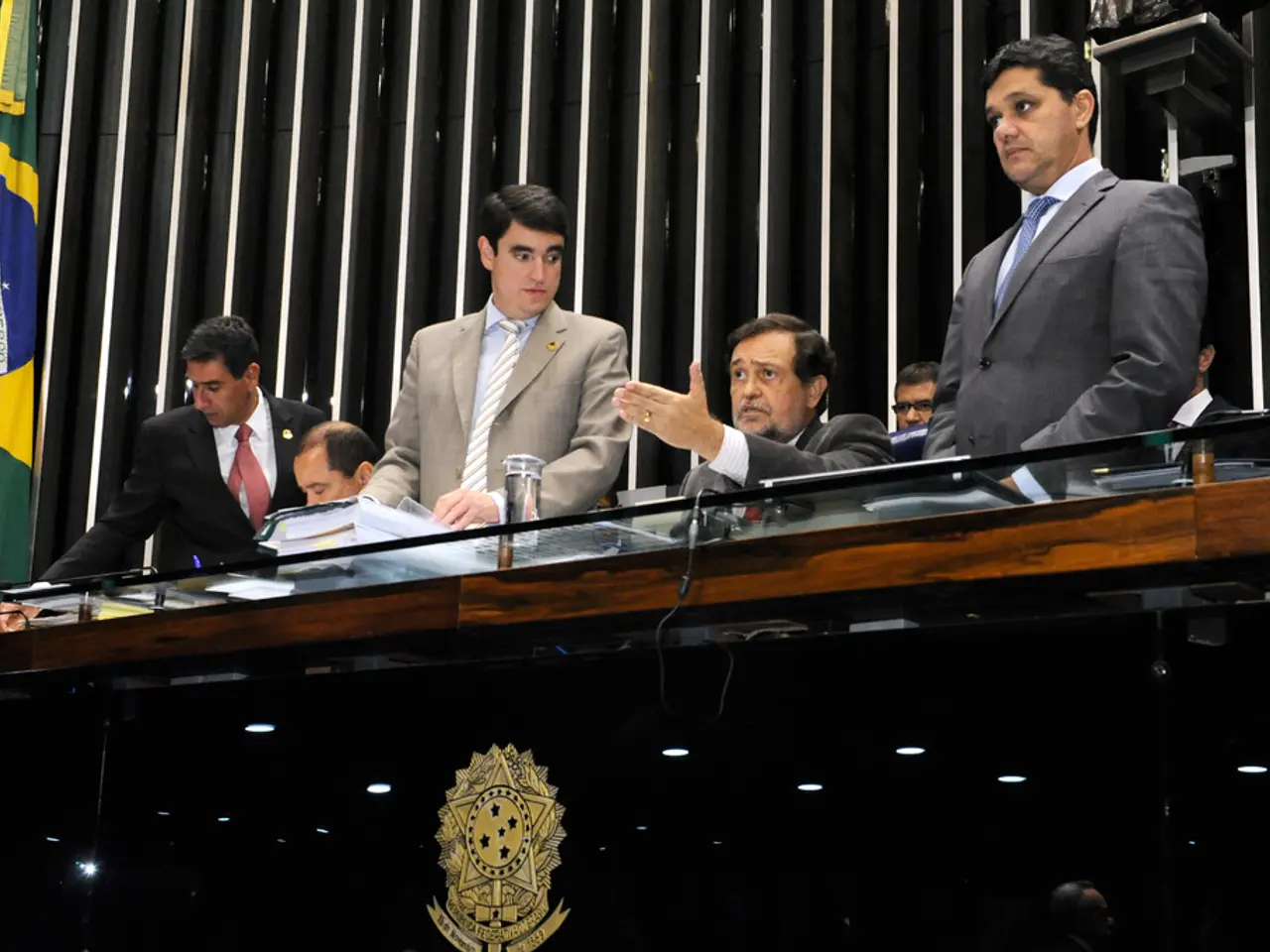Right-wing critics under fire for formulating regulations they repeatedly disregard, according to Jon Stewart's critique
The Federal Communications Commission (FCC), under the leadership of Chairman Brendan Carr, has proposed a new measure that requires CBS to install a "bias monitor" or ombudsman as a condition for approving Skydance Media's merger with Paramount Global. This move is part of the FCC's effort to address perceived media bias in broadcast networks.
Brendan Carr has defended this decision, stating that it aims to counteract bias and restore fact-based reporting in broadcast media. However, Democratic FCC commissioner Ana Gomez has dissented, arguing that these controls over editorial content may violate the First Amendment.
The proposed ombudsman's role is to review complaints of bias and ensure viewpoint diversity at CBS News. This development comes amidst political controversy surrounding late-night TV figures like Stephen Colbert, known for his criticism of former President Trump, and CBS's cancellation of "The Late Show with Stephen Colbert" in 2026.
The context suggests that the show's cancellation might be linked to the $16 million settlement between Paramount Global and Trump related to a lawsuit accusing CBS News of dishonest editing during a "60 Minutes" interview with Kamala Harris.
Jon Stewart, a vocal critic of the FCC’s move, has compared it unfavorably to historical examples of government control over media content. He expressed concerns about government overreach and the risk of censorship implied by the FCC's direct involvement in newsroom oversight.
Meanwhile, Stewart has also criticized Greg Gutfeld for dominating in the ratings department of late-night television. He mocked Jay Leno for criticizing comics for getting too political and predicted that Carr won't be going after conservative-leaning programs.
In a recent episode of his "Weekly Show" podcast, Stewart speculated that Carr is seeking more right-wing billionaires to buy up media properties for potential acquisitions and mergers. He also dismissed concerns about the FCC potentially targeting shows with a conservative bias.
Brittany Mehmedovic, Stewart's producer, has referred to Fox News' coverage of alleged left-wing bias on television. Stewart believes Fox News' popularity is not due to being a both-sides guy, but rather its relentless and purposeful propaganda.
The cancellation of "The Late Show" is being questioned for potential political reasons, as CBS's parent company Paramount Global seeks FCC approval for a multibillion-dollar merger with SkyDance Media. However, CBS has cited financial reasons for ending the show.
This ongoing saga highlights the complex relationship between media, politics, and the role of regulatory bodies like the FCC in maintaining a balanced and fair media landscape. The debate over media bias and government intervention continues to evolve, with voices like Stewart's adding to the discourse.
Celebrities like Jon Stewart and Brittany Mehmedovic have voiced their concerns about the FCC's proposed measure, fearing potential government overreach and the risk of censorship in broadcast media. This measure, aimed at counteracting bias and restoring fact-based reporting, requires CBS to install an ombudsman as a condition for approving Skydance Media's merger with Paramount Global. Meanwhile, the cancellation of "The Late Show with Stephen Colbert" has sparked debates about political motives, as the show's parent company seeks FCC approval for a multibillion-dollar merger. In the realm of politics, Democratic FCC commissioner Ana Gomez has argued against this move, contending that such controls over editorial content may violate the First Amendment.








